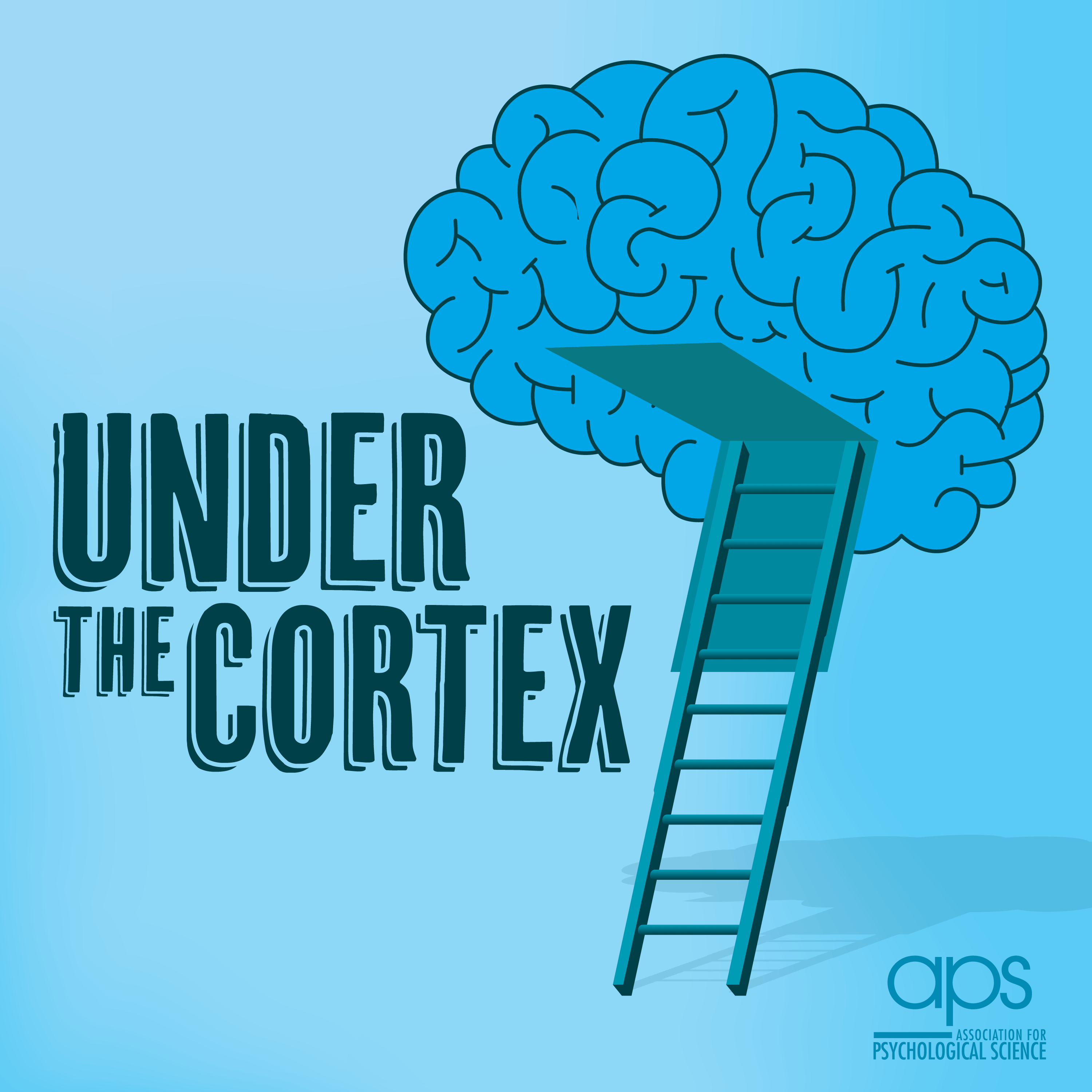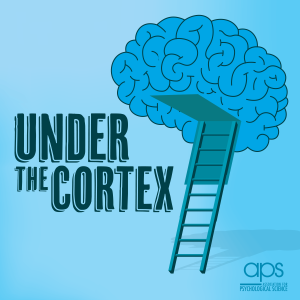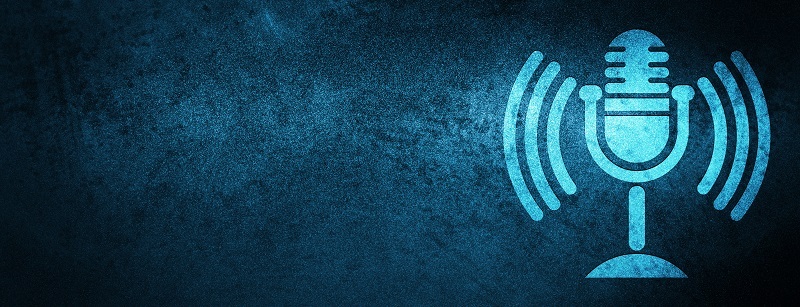
236.3K
Downloads
152
Episodes
The podcast of the Association for Psychological Science. What does science tell us about the way we think, behave, and learn about the world around us? Under the Cortex is proudly sponsored by Macmillan Learning Psychology, where captivating content meets genuine engagement. Our authors, who are seasoned educators, understand today’s teaching challenges. We aim to craft and present both information and interactive tools that truly connect with students. Whether in-person or online, we support instructors and inspire students. Macmillan Learning Psychology: Engaging Every Student, Supporting Every Instructor, Setting New Standards for Teaching and Learning.
The podcast of the Association for Psychological Science. What does science tell us about the way we think, behave, and learn about the world around us? Under the Cortex is proudly sponsored by Macmillan Learning Psychology, where captivating content meets genuine engagement. Our authors, who are seasoned educators, understand today’s teaching challenges. We aim to craft and present both information and interactive tools that truly connect with students. Whether in-person or online, we support instructors and inspire students. Macmillan Learning Psychology: Engaging Every Student, Supporting Every Instructor, Setting New Standards for Teaching and Learning.
Episodes

Thursday Aug 07, 2025
How Our Brains Grasp Faces
Thursday Aug 07, 2025
Thursday Aug 07, 2025
From the earliest months of life, we rely on faces to help us navigate the world. They tell us who’s safe, who’s familiar, and whether they’re paying attention to us. But do our responses to faces develop gradually as our brains mature? Or are we born prewired to lock onto the human face. In this episode of Under the Cortex, cognitive scientists Rebecca Saxe of MIT and Heather Kosakowski of Harvard University join host Scott Sleek to discuss their groundbreaking findings, published in Current Directions in Psychological Science, about the development of the brain’s face-processing network.
If you're interested in learning more about this research, visit psychologicalscience.org.
Send us your thoughts and questions at underthecortex@psychologicalscience.org.
Under the Cortex is going on hiatus and won’t be recording new episodes for the foreseeable future. Explore our archive of 150 episodes filled with scientific insights, stories from editors and researchers, and conversations worth revisiting again and again!

Thursday Jul 24, 2025
The Cost of Efficiency: Exploring Doubling-Back Aversion
Thursday Jul 24, 2025
Thursday Jul 24, 2025
Why do we avoid retracing our steps—even when it helps us reach our goals faster? In this episode of Under the Cortex, host Özge Gürcanlı Fischer-Baum speaks with Kristine Cho and Clayton Critcher from the University of California, Berkeley about their latest research on doubling-back aversion: the tendency to resist more efficient paths if they require undoing prior effort.
Across four studies involving performance tasks and virtual navigation, Kristine finds that people often choose less efficient strategies simply to avoid feeling like their past actions were a waste. This aversion, while related to the sunk-cost fallacy, has its own unique psychological fingerprint.
Tune in to learn how our perceptions of effort, progress, and meaning can lead us astray—even when we know better.
If you're interested in learning more about this research, visit psychologicalscience.org.
Send us your thoughts and questions at underthecortex@psychologicalscience.org.

Thursday Jul 10, 2025
Time Warped: How Repetition Distorts Our Sense of Duration
Thursday Jul 10, 2025
Thursday Jul 10, 2025
Why do familiar experiences sometimes feel like they happened longer ago than they actually did?
In this episode of Under the Cortex, host Özge Gürcanlı Fischer-Baum speaks with Brynn Sherman from the University of Pennsylvania about her recent study published in Psychological Science, the flagship journal of the Association for Psychological Science. Sherman's research uncovers a surprising illusion: repeated experiences, which are more vividly remembered, are often perceived as having occurred further in the past than they did.
Through a series of experiments, Sherman and her colleague Yousif demonstrate that this distortion in time perception is both robust and consistent, shedding light on how our memories can mislead us about the timing of events. Tune in to explore the mechanisms behind this illusion and its implications for our understanding of memory and time.
If you're interested in learning more about this research, visit psychologicalscience.org.
Send us your thoughts and questions at underthecortex@psychologicalscience.org.

Thursday Jun 26, 2025
Two Maps in the Mind: How the Brain Stores What We Know About Others
Thursday Jun 26, 2025
Thursday Jun 26, 2025
How does your brain keep track of the people in your life—not just who they are, but where they are in relation to you and to each other?
In this episode of Under the Cortex, Özge Gürcanlı Fischer-Baum talks with Robert Chavez from the University of Oregon about his new findings published in Psychological Science, the flagship journal of the Association for Psychological Science. His research shows that our brains rely on two separate systems to encode person-knowledge: one that maps others in the broader world (allocentric), and another that maps them in relation to ourselves (egocentric).
Together, these systems help us organize social memory and navigate our relationships with others. Tune in to learn how the brain structures our social world—and why it matters.
If you're interested in learning more about this research, visit psychologicalscience.org.
Send us your thoughts and questions at underthecortex@psychologicalscience.org.

Thursday Jun 12, 2025
Bridging Research and Editorial Vision: A Conversation with Arturo Hernandez
Thursday Jun 12, 2025
Thursday Jun 12, 2025
How do the roles of researcher and editor inform each other? What can this intersection tell us about the future of psychological science?
In this episode of Under the Cortex, Arturo Hernandez, Professor of Psychology at the University of Houston and editor for Perspectives on Psychological Science, joins host Özge Gürcanlı Fischer Baum to reflect on the dynamic relationship between scientific discovery and scientific communication. Drawing from his research on bilingualism and brain plasticity, Hernandez shares how his experiences in the lab and at the editor’s desk have shaped his views on innovation, interdisciplinarity, and the evolving needs of the field.
If you're interested in learning more about this research, visit psychologicalscience.org.
Send us your thoughts and questions at underthecortex@psychologicalscience.org.

Thursday May 29, 2025
Real-Time Research: How the Experience Sampling Method Is Changing Psychology
Thursday May 29, 2025
Thursday May 29, 2025
How do you design a study that captures human experience as it unfolds in real time? In this episode, Under the Cortex explores the Experience Sampling Method (ESM), a powerful approach for studying psychological processes. Host Özge Gürcanlı Fischer-Baum is joined by Jessica Fritz from Osnabruck University, and Marilyn Piccirillo from the Rutgers Addiction Research Center and Brain Health Institute, who are among the coauthors of a new article published in Advances in Methods and Practices in Psychological Science. The paper outlines ten key design and implementation considerations for ESM studies, helping researchers apply this method with clarity, rigor, and real-world relevance.
If you're interested in learning more about this research, visit psychologicalscience.org.
Send us your thoughts and questions at underthecortex@psychologicalscience.org.

Thursday May 15, 2025
Why Do Emotions Hijack Our Decisions? The Neuroscience of Impulsivity
Thursday May 15, 2025
Thursday May 15, 2025
Why do some people struggle to control their actions when emotions run high? What happens in the brain when impulsive decisions take over? Why do some brains lose control under high arousal, while others stay composed?
In this episode of Under the Cortex, host Özge Gürcanlı Fischer-Baum speaks with Matthew V. Elliott from the University of California at Berkeley. Elliott’s study published in APS’s journal Clinical Psychological Science explores the science of emotion-related impulsivity —a trait linked to psychiatric disorders, aggression, and even suicidality. Fischer Baum and Elliott discuss how a new model of brain function, the GANE model, helps explain why heightened physiological arousal makes it harder for some people to regulate their emotions, what norepinephrine does to “hotspot” brain regions, and what this means for mental health treatments.
If you're interested in learning more about this research, visit psychologicalscience.org.
Send us your thoughts and questions at underthecortex@psychologicalscience.org

Thursday May 01, 2025
Beyond Words: Why TalkBank is Crucial for Spoken Language Research
Thursday May 01, 2025
Thursday May 01, 2025
Most linguistic datasets focus on written text, but what about the way we actually speak? TalkBank, the world’s largest open-access repository of spoken language, is helping researchers understand everything from child development to dementia, bilingualism, and even classroom learning.
In this episode of Under the Cortex, host Ozge Gurcanli Fischer Baum speaks with Brian MacWhinney from the Carnegie Mellon University, who recently published an article in APS’s journal Current Directions in Psychological Science. MacWhinney, the creator of TalkBank, highlights how spoken language research is transforming our understanding of psychology and communication. The conversation evolves into the discussion of the importance of open-access language databases, the role of AI in analyzing speech, and the future of spoken language research across cultures and disciplines.
If you're interested in learning more about this research, visit psychologicalscience.org.
Send us your thoughts and questions at underthecortex@psychologicalscience.org

Thursday Apr 17, 2025
Ensuring Research Validity: A Checklist for Stronger Science
Thursday Apr 17, 2025
Thursday Apr 17, 2025
Scientific credibility depends on valid research. But with growing concerns about replication failures and questionable research practices, how can scientists ensure their findings stand up to scrutiny?
In this episode, Under the Cortex explores the VALID checklist, a newly developed tool that helps researchers systematically assess the quality of their studies. Özge Gürcanlı Fischer Baum speaks with Susanne Kerschbaumer from the University of Vienna and asks how the checklist offers tailored guidance for different types of research designs. Kerschbaumer explains how the study published in APS’s journal Advances in Methods and Practices in Psychological Science addresses this important issue. Together, they discuss why validity is more than just good methodology, how researchers can avoid common pitfalls, and what the future of scientific rigor looks like.
You can access the checklist using the following link: www.validchecklist.com
If you're interested in learning more about this research, visit psychologicalscience.org.
Send us your thoughts and questions at underthecortex@psychologicalscience.org

Thursday Apr 03, 2025
Young Minds, Smart Strategies: How Children Decide When to Use External Memory Aids
Thursday Apr 03, 2025
Thursday Apr 03, 2025
Do young children prefer to rely on their memory, or do they take the easier route and use external aids like lists and reminders? How do they decide when to put in the mental effort and when to lean on available tools?
In this episode of Under the Cortex, host Özge Gürcanlı Fischer Baum teams up with Zsuzsa Kaldy from the University of Massachusetts Boston. They discuss Kaldy’s study published in APS’s journal Psychological Science addressing how children balance memory with external help. The conversation evolves into what these findings reveal about cognitive development, and cultural differences in learning.
If you're interested in learning more about this research, visit psychologicalscience.org.
Send us your thoughts and questions at underthecortex@psychologicalscience.org
